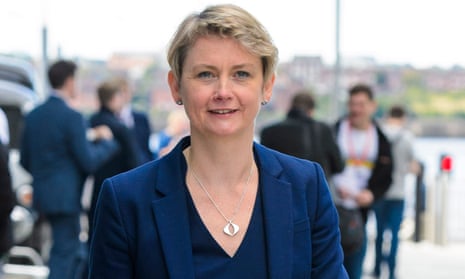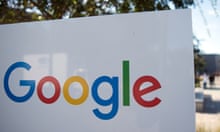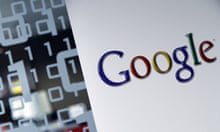Politicians and advertisers have warned Google that it must overhaul advertising practices or risk being hit by regulation and advertiser boycotts.
A major global marketing company became the first to pull all its advertising spending with Google after the news that adverts for a range of organisations had been inadvertently placed next to extremist material. MPs meanwhile threatened that legislation could be put on the table if social media companies did not effectively self-regulate.
The company has been forced to review its advertising policies after the UK government joined organisations including the Guardian, BBC and Transport for London in pulling advertising from Google and YouTube in response to the news. The company has also been summoned to the Cabinet Office.
An influential group of MPs from the home affairs select committee wrote to the company on Friday, accusing them of “profiting from hatred” just days after accusing Google, Twitter and Facebook of “commercial prostitution” because of a failure to tackle hate speech on their platforms.
Labour MP Yvette Cooper, chair of the HASC, said that despite reassurances during the committee hearing that the companies did not allow hate speech or terrorist content to be monetised, media reports had revealed “that this is not the case”.
“Government advertisements and major brands advertising is still being placed on inappropriate and hate-filled sites,” she wrote. “As a result Google and these organisations are still profiting from hatred.”
Cooper called on Google to refund money to the government and other advertisers and explain “how this has happened, and what you are doing to prevent it ever happening again.”
Google could face an embarrassing number of refund requests, which it is understood will be issued in the form of credits to advertisers if the company made an error placing an ad and concluded that the material was sufficiently offensive to terminate the account of the publisher.
Conservative MP Tim Loughton, who also sits on the committee, said if social media companies “would not do their own self-regulation, they will have to face proper regulation” – raising the prospect of more restrictive UK legislation being brought against internet giants. He supported a move in Germany which could see social media companies face fines of up to €50m (£44m) if they failed to delete offending material within a week. .
“There is a real public appetite that would support those companies being brought to heel,” he said.
Labour MP Chuka Umunna said: “It is wrong that these social media companies should make billions of dollars out of running their platforms but don’t make the necessary investments to properly police them.”
Meanwhile Google was facing growing commercial pressure, with French advertising group Havas, whose clients include O2, EDF and Royal Mail, becoming the first of the major global marketing companies to pull all its advertising spending from its platforms.
Havas, the world’s sixth largest marketing services group, spends about £175m on digital advertising on behalf of clients in the UK annually.
The firm said it had taken the step after talks with Google had broken down because the tech company had been “unable to provide specific reassurances, policy and guarantees that their video or display content is classified either quickly enough or with the correct filters.”
Sir Martin Sorrell, chief executive of the world’s largest marketing services group WPP, was critical of Google, but fell short of blacklisting the company from its UK advertising schedule.
“Google, Facebook and others are media companies and have the same responsibilities as any other media company,” said Sorrell. “They cannot masquerade as technology companies, particularly when they place advertisements.”
Publicis, the world’s third largest marketing group, said that it is reviewing its global relationship with Google and YouTube. The company, which has clients including Samsung, Coty and Mars, was highly critical of Google’s failures.
“Publicis Media is committed to being at the forefront of rigorous brand safety, viewability and verification standards and protocols,” said a spokeswoman. “We hold all publishers, including Google and YouTube, accountable to ensure that the highest standards of advertising are consistently met.”
It is also understood that Tesco has joined the host of advertisers to “pause” spending on YouTube for the time being.
In face of the growing pressure Google promised it would conduct a “thorough review of our ads policies and brand controls”. Ronan Harris, managing director of Google UK, said the company would be making changes in the coming weeks to give brands more control over where their adverts appeared.
Harris said 400 hours of video was uploaded to YouTube every minute, adding that last year Google removed nearly 2 billion “bad ads” from its systems, removed over 100,000 publishers from its AdSense programme and prevented adverts from serving on over 300m YouTube videos.
“We’ve heard from our advertisers and agencies loud and clear that we can provide simpler, more robust ways to stop their ads from showing against controversial content,” he said.
The controversy comes after a Times investigation revealed that adverts from government departments, Channel 4, the BBC, Argos, L’Oréal and others were placed next to YouTube videos of American white nationalists, a hate preacher banned in the UK and a controversial Islamist preacher.
Ads for the Guardian’s membership scheme are understood to have been placed alongside a range of extremist material after an agency acting on the media group’s behalf used Google’s AdX ad exchange, which uses programmatic trading. The Guardian withdrew its advertising from Google and YouTube in response.
The use of programmatic trading, which automates the process of buying and selling advertising online, is increasingly controversial, raising concerns that it both hurts media revenues and supports extremist material.
A government spokeswoman said it had placed a temporary restriction on YouTube advertising pending assurance. Google has been summoned to the Cabinet Office “to explain how it will deliver the high quality of service government demands on behalf of the taxpayer.”










